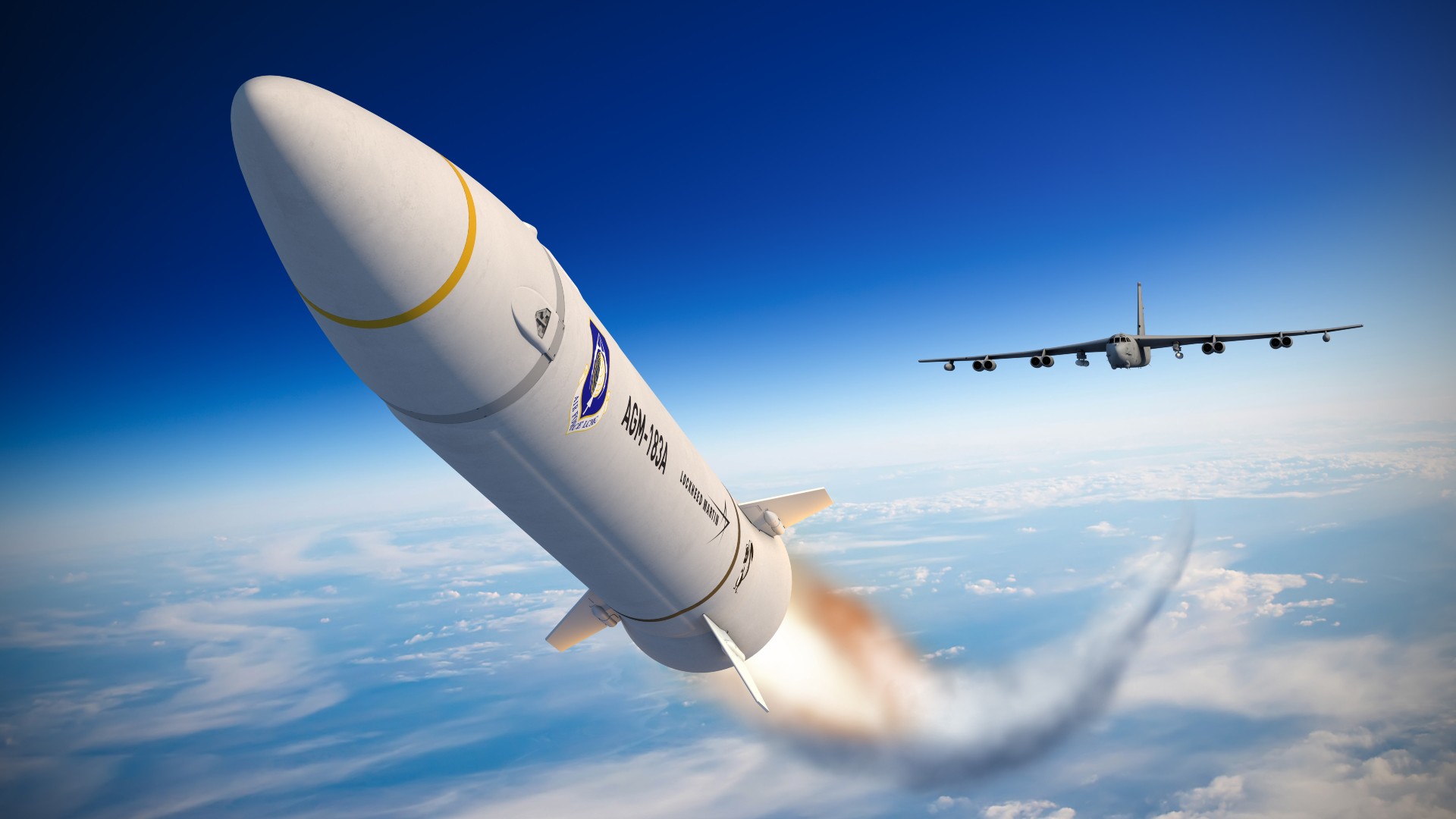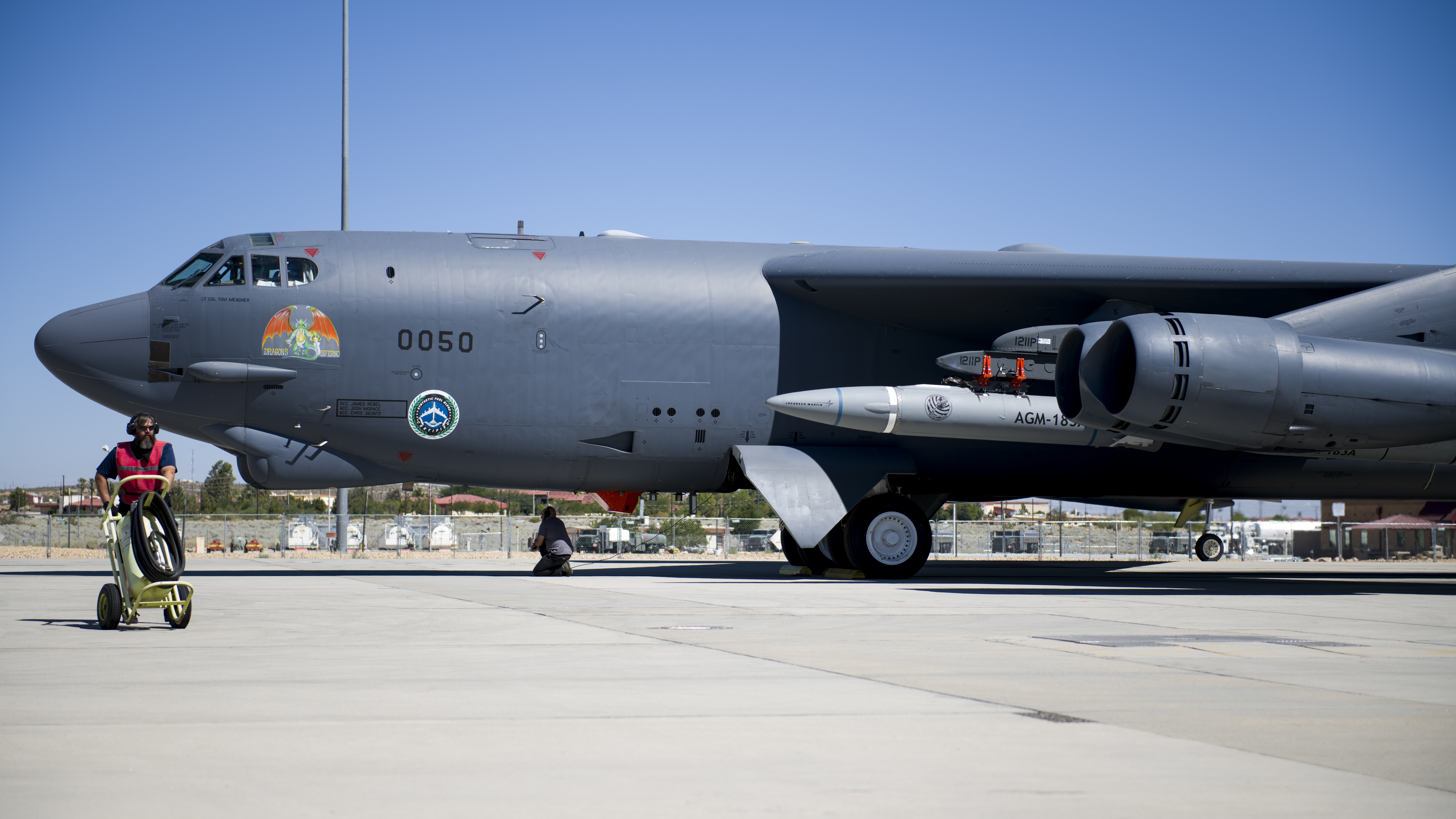
The U.S. Air Force will not use a Lockheed Martin-made hypersonic weapon after a troubled set of tests, the service's acquisition lead said on Wednesday (March 29).
The service's new AGM-183A Air-launched Rapid Response Weapon, or ARRW ("Arrow") was supposed to be the United States military's first hypersonic weapon to reach operational status. A successful test happened in December, with a peak velocity five times the speed of sound, following several failed efforts.
December's test met all major objectives, but USAF secretary Frank Kendall said in a hearing that a test in March had failed, according to Defense News. Following that, acquisition lead Andrew Hunter submitted written testimony to the House Tactical Air and Land Forces Subcommittee on Wednesday (March 29) saying the USAF will not buy the weapon, but they will complete testing.
Related: US Air Force launches 1st operational hypersonic missile
"While the Air Force does not currently intend to pursue follow-on procurement of ARRW once the prototyping program concludes, there is inherent benefit to completing the all-up round test flights to garner the learning and test data that will help inform future hypersonic programs," Hunter wrote in his testimony, Defense News said.
When the Lockheed test happened exactly has not been released, but also in March a hypersonic test launch was scrubbed out of Florida's Cape Canaveral Space Force Station "as a result of pre-flight checks", according to the Office of the Secretary of Defense in a statement to Florida Today.
Lockheed Martin, speaking with Breaking Defense, told the news outlet the company is "committed to developing hypersonic technology on an accelerated timeline to meet this critical national security need" despite not being selected.

Hypersonic weapons are a key development area for the Pentagon, which has repeatedly warned U.S. politicians that Russia and China already have such weapons ready to go. But the canceled ARRW is not the only hypersonic program within the United States.
DARPA has a Hypersonic Air-breathing Weapon Concept (HAWC) that is also testing prototypes, including one from Lockheed, while the Air Force's Hypersonic Attack Cruise Missile (HACM) is also ongoing, for example.
Elizabeth Howell is the co-author of "Why Am I Taller?" (ECW Press, 2022; with Canadian astronaut Dave Williams), a book about space medicine. Follow her on Twitter @howellspace. Follow us on Twitter @Spacedotcom or Facebook.







